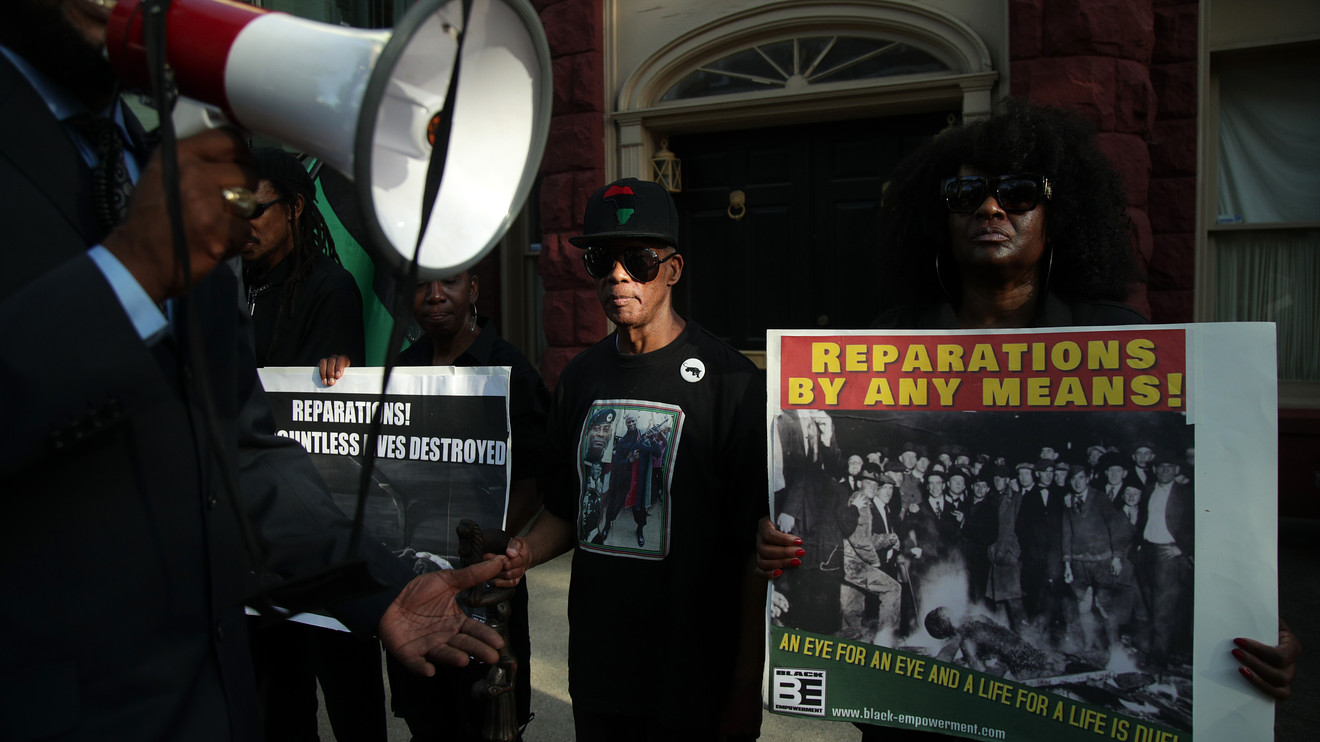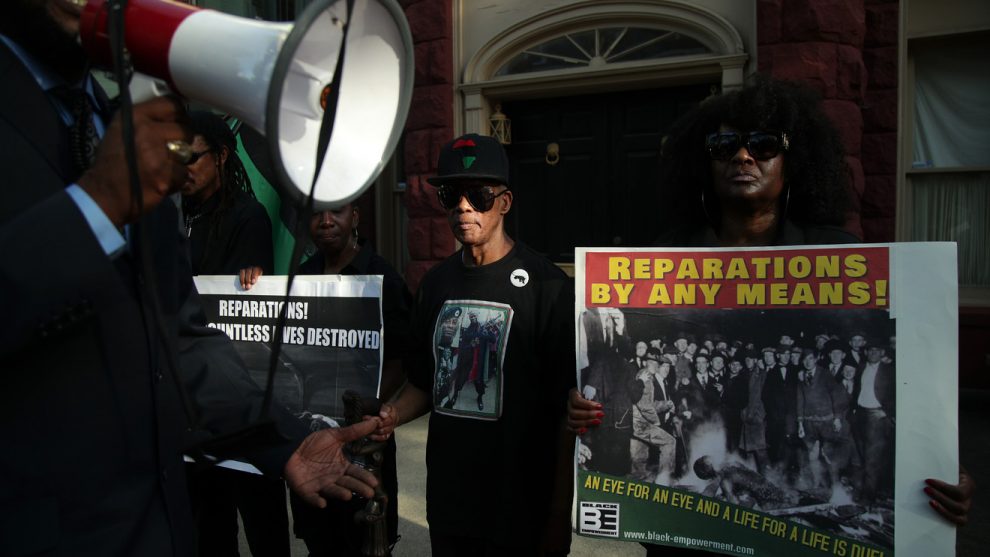
The idea of cash reparations for the descendants of slaves in the U.S. remains unpopular among a majority of people, a poll released Monday suggests.
Some 67% of Americans believe the government shouldn’t make cash payments to black Americans descended from slaves, according to a nationally representative Gallup poll of 2,543 U.S. adults. Another 29% said the government should make such payments, while 4% had no opinion.
Responses from black Americans, meanwhile, painted a very different picture: 73% thought the government should pay out cash reparations, compared to 25% who said it shouldn’t and 2% who had no opinion. In contrast, just 16% of white Americans expressed support for reparations, 81% did not, and 3% had no opinion.
Along party lines, Republican and Republican-leaning respondents were nearly unified in opposition to the idea of cash reparations (90% against and 8% in favor). Democrats and Democrat leaners, on the other hand, were split (49% against and 47% in favor).
Despite low overall support for this version of reparations, Gallup notes, the share of Americans in favor of the controversial idea nearly two decades ago was decidedly lower. In the beginning of 2002, only 14% of Americans backed such a proposal.
Other recent polls have also found relatively low support for reparations. An NPR/PBS NewsHour/Marist poll of 1,346 U.S. adults conducted in mid-July found that just 27% thought providing reparations for slavery was a “good idea.”
Rep. Sheila Jackson Lee (a Democrat from Texas) in January reintroduced House bill H.R. 40 — legislation that retired Rep. John Conyers (a Democrat from Michigan) had consistently introduced since 1989 — which would establish a commission to study reparations proposals for African Americans. The bill, the subject of a June 19 hearing, drew testimony from people like 2020 candidate Sen. Cory Booker (a Democrat from New Jersey), actor Danny Glover and writer Ta-Nehisi Coates, author of the 2014 Atlantic article “The Case for Reparations.”
“It’s impossible to imagine America without the inheritance of slavery,” Coates said. “For a century after the Civil War, black people were subjected to a relentless campaign of terror.” Coates added, “Victims of that plunder are very much alive today.”
Booker in April introduced a Senate companion bill to H.R. 40. Several of his fellow 2020 Democratic presidential contenders, including Sen. Kamala Harris of California, Sen. Elizabeth Warren of Massachusetts, and former Housing and Urban Development Secretary Julián Castro, have also backed the idea of studying potential reparations proposals. (Self-help author Marianne Williamson has floated a $200 to $500 billion reparations program.) But many candidates have voiced more concrete support for race-neutral policies aimed at closing the racial wealth divide.
One estimate for reparation payments per person totals $40,000 to $60,000 minimum, according to Duke University professor William Darity Jr. and writer A. Kirsten Mullen, assuming around 35 million black Americans would be eligible. Reparations should be aimed at boosting black households’ average net worth to match that of white households, they said.
Gallup conducted the nationwide telephone survey between June 19 and July 12.
Advocates for compensation in the form of reparations argue that it would help address some of the legacies of slavery, including persistent and systemic racism, employment discrimination, housing and lending discrimination and America’s racial wealth gap. Black families had a mean and median net worth of less than 15% of white families’ in 2016, according to the Federal Reserve Board, more than 150 years after the emancipation of American slaves.
Senate Majority Leader Mitch McConnell, for his part, has said he thinks reparations for slavery aren’t a “good idea” and that “no one currently alive was responsible for that.”












